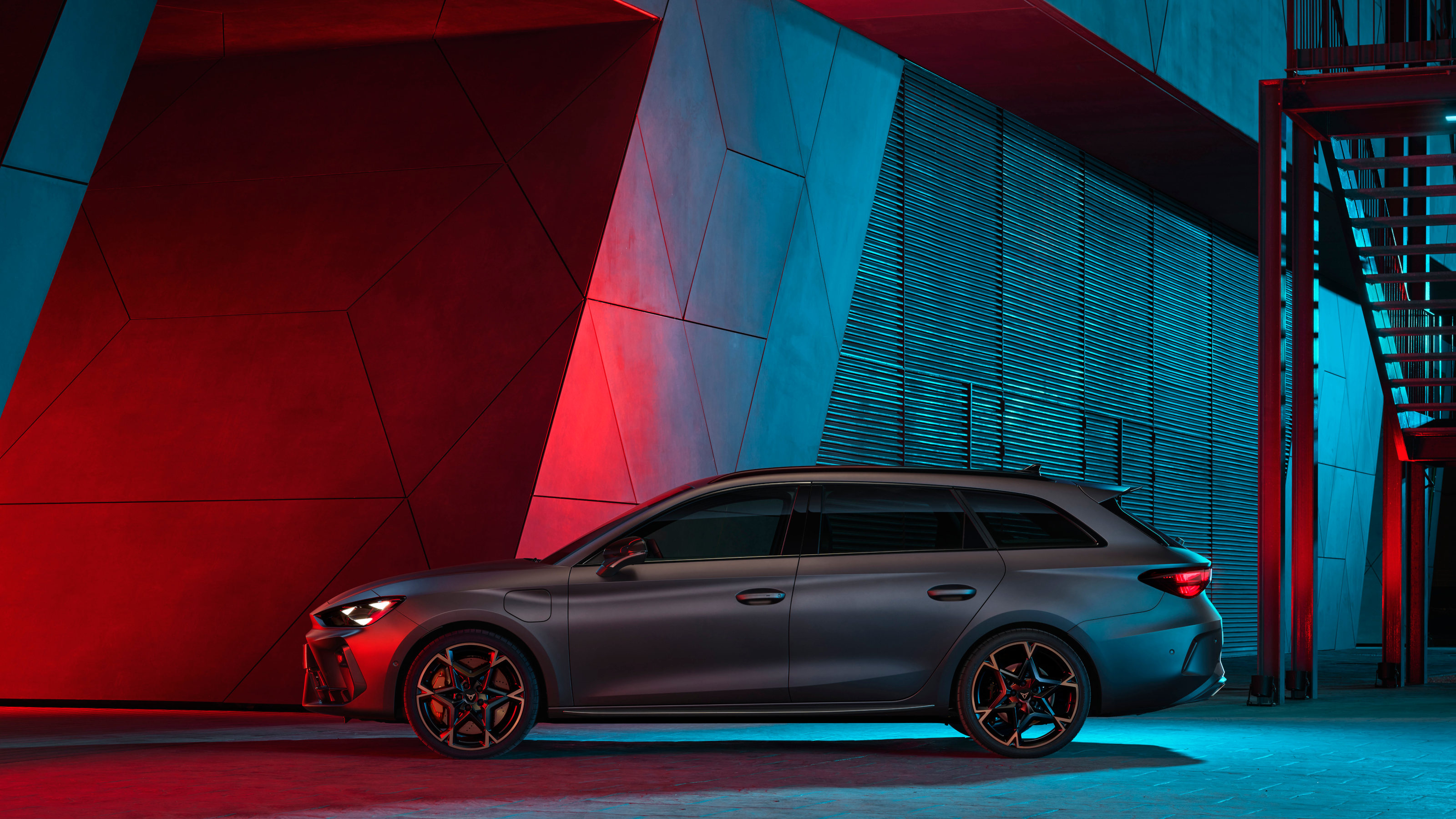
Cupra is a youngish company with a bold electrification plan. In past conversations with gruff but ebullient CEO Wayne Griffiths and head of design Jorge Díez, it's clear there is a clear and innovative strategy, building on cars like the excellent Born EV and the eagerly awaited new Tavascan.
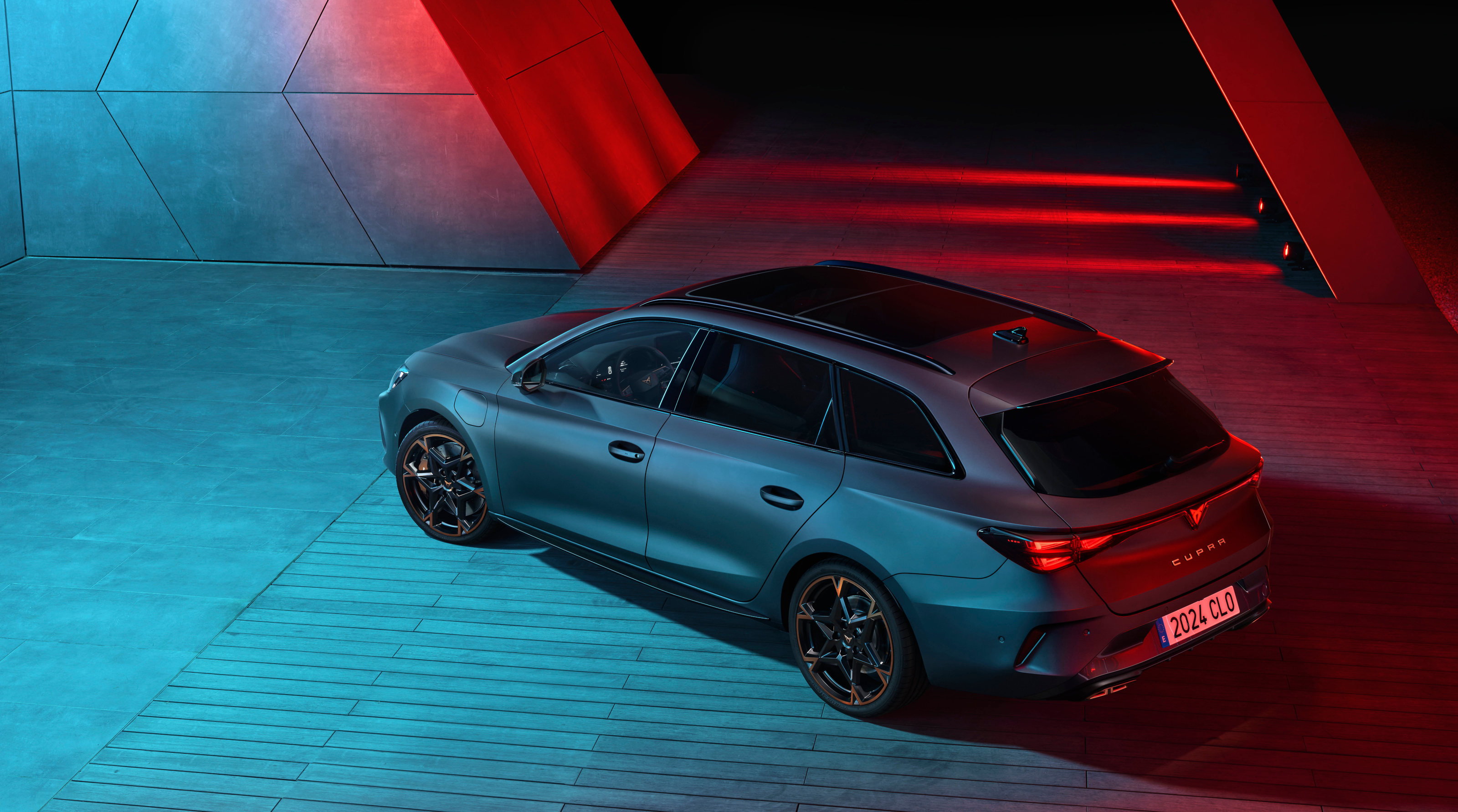
That ambition is slightly restrained by reality, not least the economics of car-making (even as part of the vast VW Group), and the recent political wrangling that has stalled EV uptake, given fruitless succour to fossil-fuel apologists and generally upended quite a few manufacturers’ product road maps. Hence we have the Cupra Leon and Cupra Ateca, two of the company’s stalwart designs that are feeling increasingly at odds with the cutting edge.
Up close with the Cupra Leon and Ateca
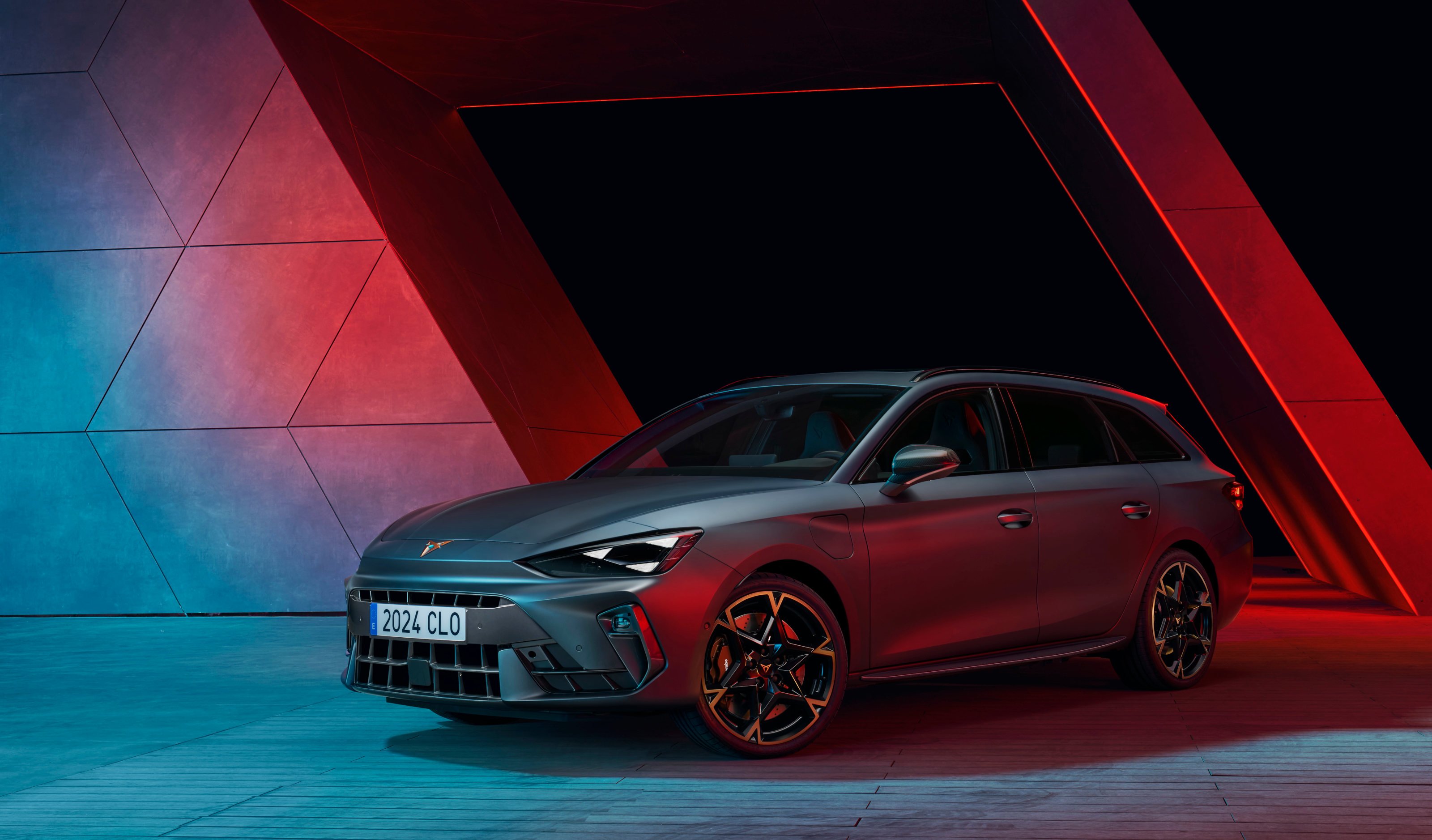
This isn’t entirely fair. The Leon is an excellent final iteration of a small modern estate car. It’s not especially showy, nor is it bland. It’s not excessively fast, nor is it slow. It’s not a mainstream, well-known brand, but nor is it a wild shot in the dark given its parentage. There is a plug-in hybrid, which gets an impressive 62 miles of electric range, but we tried the Estate version with the 2.0TSI engine and 310PS, soon to be uprated.
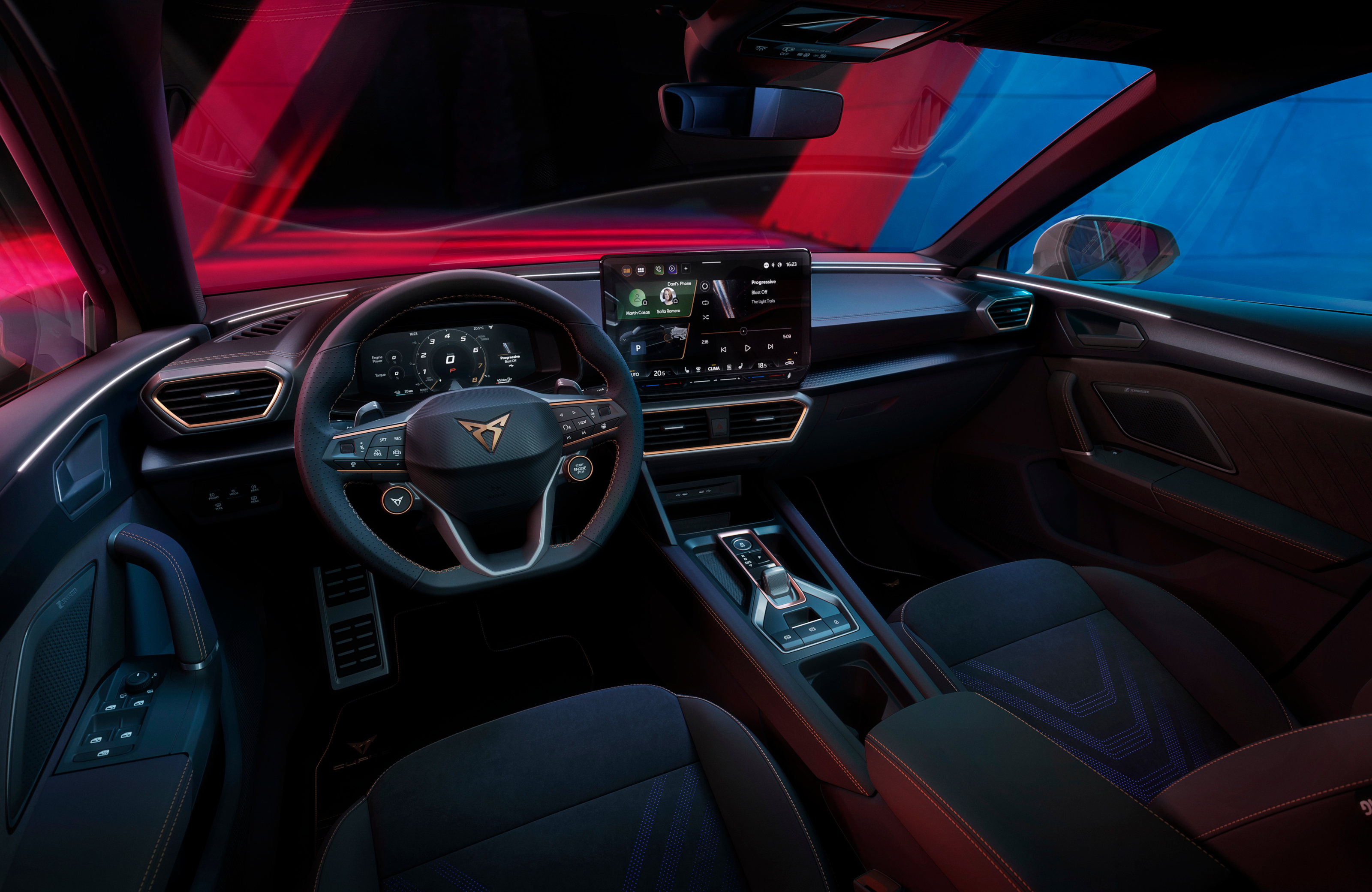
The Leon is a little long in the tooth, but the basic building blocks are sound. The estate has mildly better proportions on account of its long roof, and the car will also get a new ‘shark-nose’ front end with revised LED headlights and illuminated Cupra logo. Inside, the latest Cupra gets an updated HMI with a digital cockpit, larger infotainment screen and more of a focus on sustainable materials. Cupra has worked with Sennheiser on the 12-speaker stereo system.
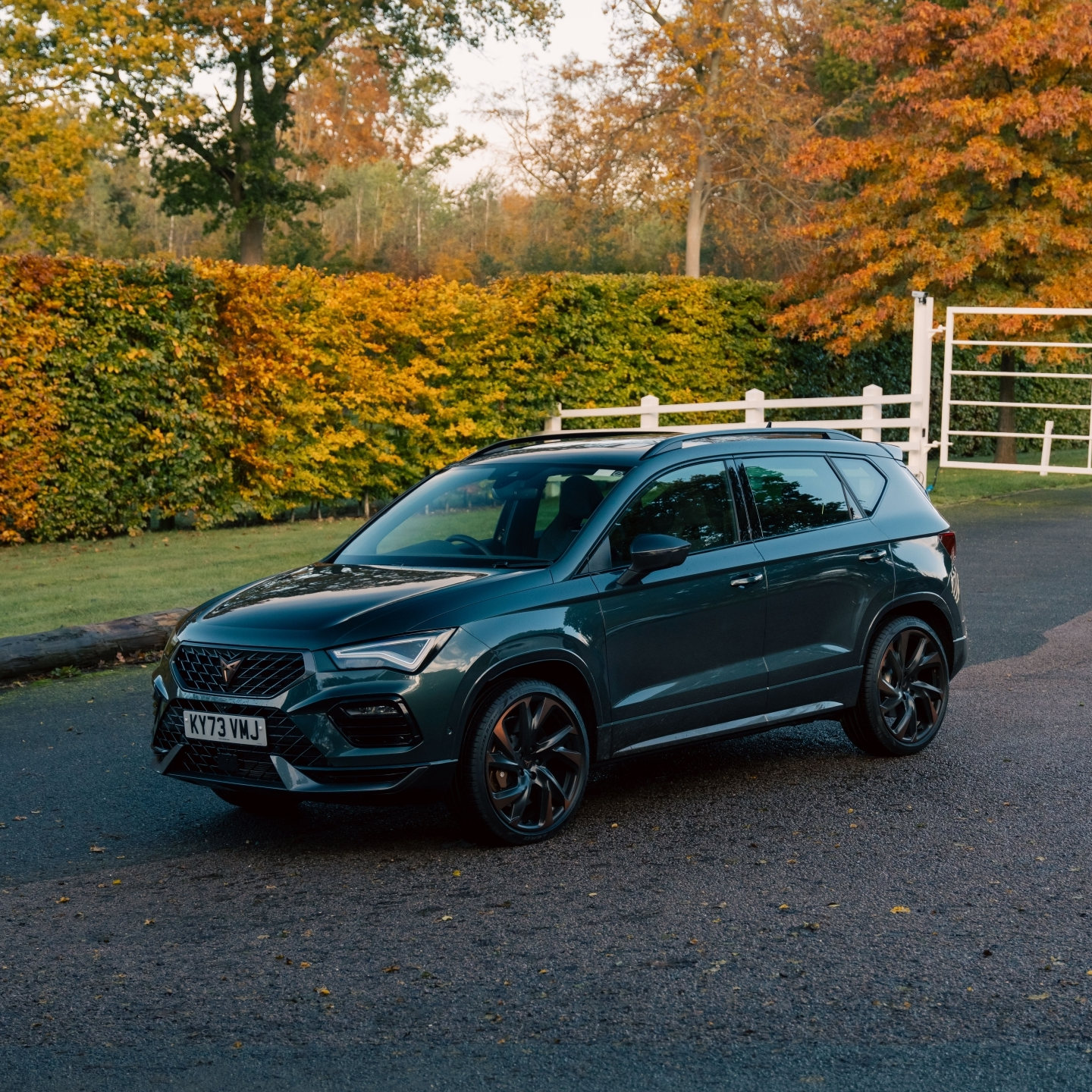
The Leon is one of those cars that does everything to a good standard without ever being elevated to excellent status. It’s pleasing to look at, engaging to drive and effortless practical, economical and presumably reliable too. With that said, it doesn’t quite do enough to stand out in a way consistent with the brand’s ideology. We hope the e-Hybrid variant creates more of a buzz, because this handsome car deserves its longevity.
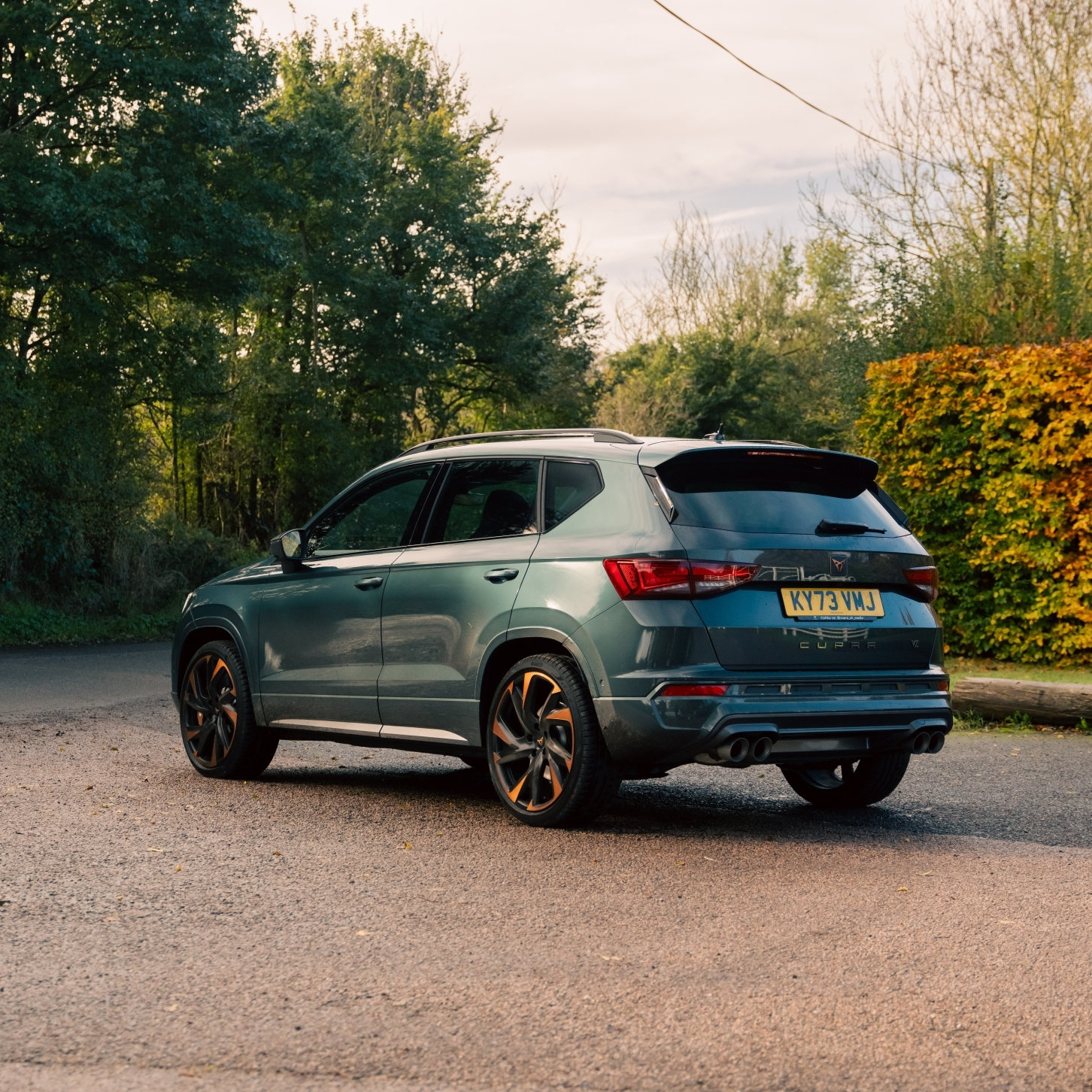
The Ateca is a more curious offering. This compact SUV might belong to the most popular segment in the modern auto landscape, but it’s up against cutting edge offerings from all sides, as every car maker piles into this profitable tranche of the market. There are many visual and tactile crossovers between the two cars, especially in terms of interior architecture, materials and form language.
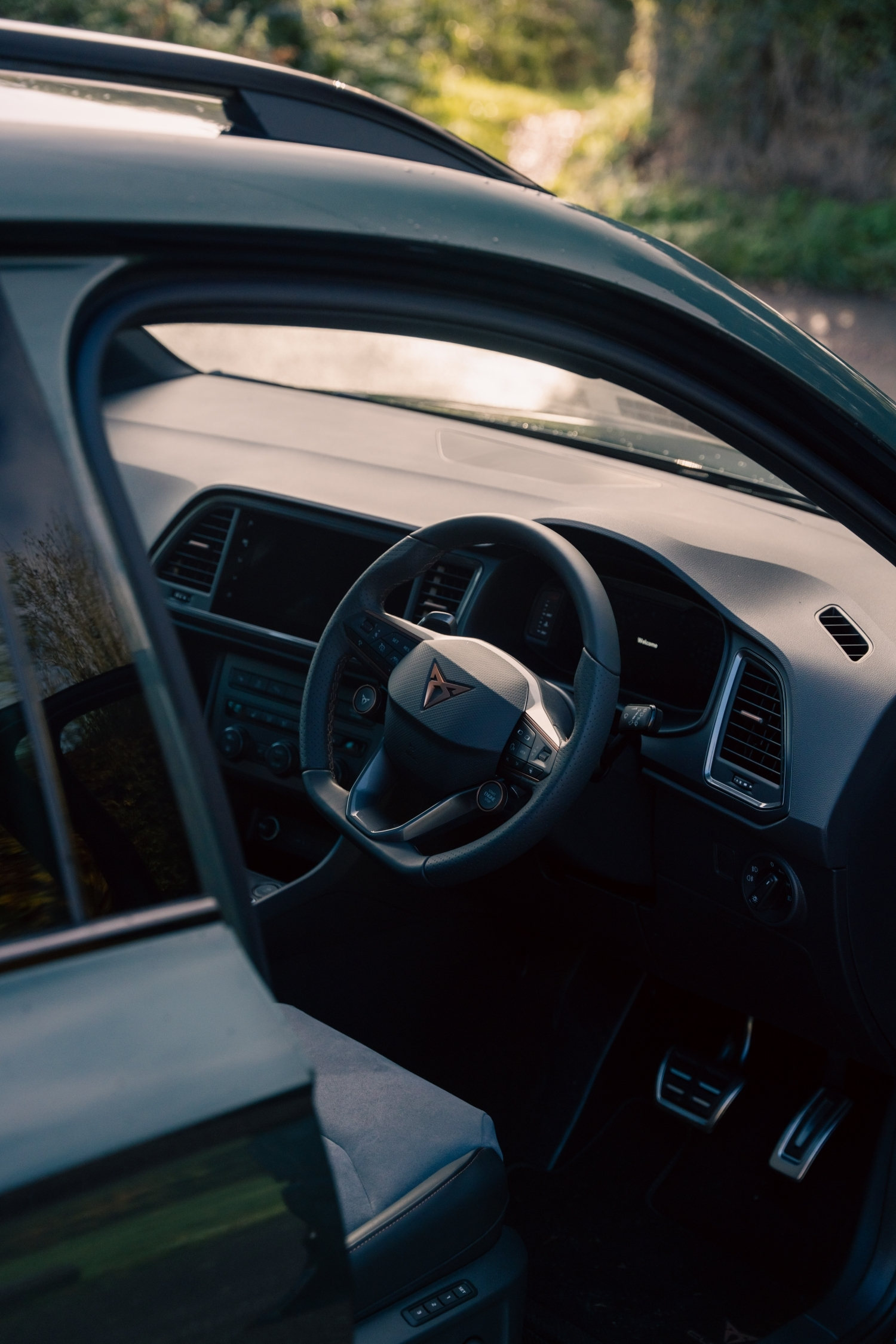
Ultimately, the Leon feels like a more solid platform on which to build an alternative, deliberately different brand. Compact estate cars are very much in the minority in these days of upscaling. In comparison, the Ateca suffers from being a non-descript entrant into a saturated segment. Even the little bits of Cupra-specific detailing – copper stitching, bucket-like seats and a vivid hint of Spanish gothic – can’t lift the car above the quotidian, especially when it’s priced above the Leon.
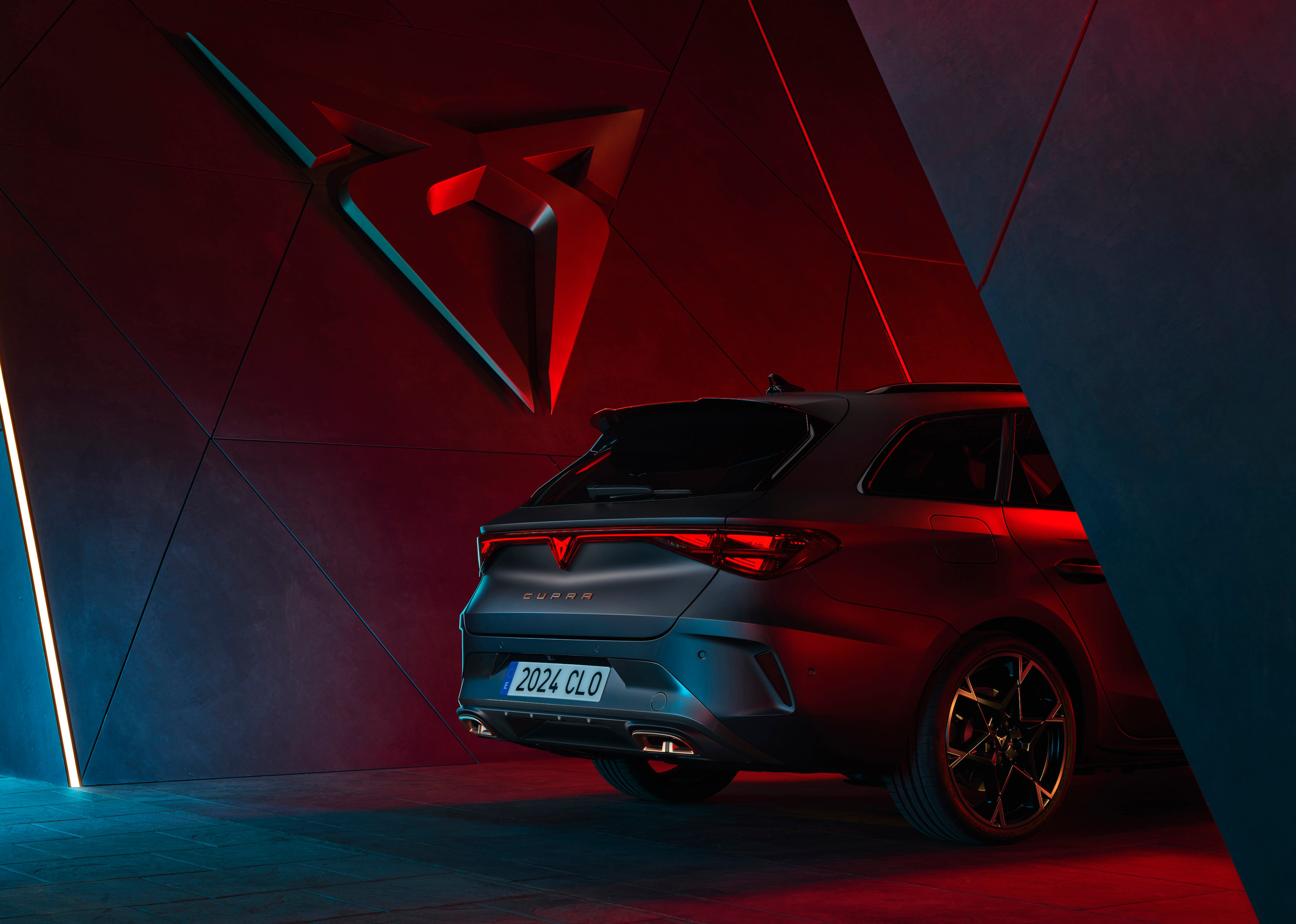
We’ll continue to keep our eyes on Cupra, for the brand’s ethos and approach promises so much. Cars like the Formentor compact crossover, the first model Cupra shaped entirely for itself and not in league with sister company Seat, and the electric Born sit far more suitably with the carefully cultivated leftfield image than either the Leon or Ateca. Next up is the all-electric Tavascan, which looks set to cement Cupra’s status as a wildcard.
Cupra Leon Estate 2.0TSI 4Drive, as tested £48,815, CupraOfficial.com
Cupra Ateca 2.0 TSI, as tested £55,485, CupraOfficial.com







